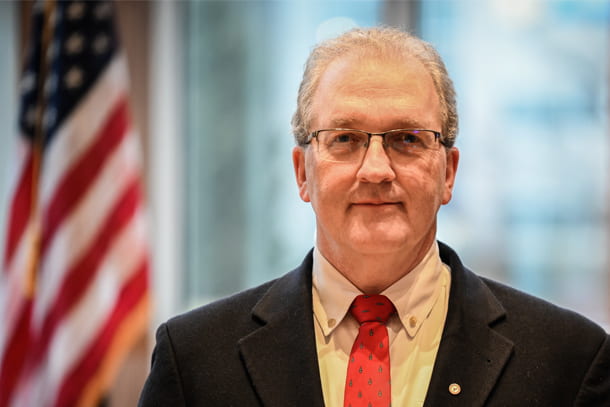Who We Are
In 1996, a Penn State team was competitively awarded one of the three Rotorcraft Centers of Excellence (RCOE) by the newly formed National Rotorcraft Technology Center (NRTC). Since that time, Penn State research and graduate student enrollment has grown 10 fold, having been competitively awarded RCOE and VLRCOE (Vertical Lift Research Center of Excellence) Cooperative agreements from the NRTC in 2001, 2006, 2011, 2016, and 2021. Penn State also receives strong support from the US Office of Naval Research (ONR), NAVAIR, US Army Research Laboratory, USAF Agility Prime, Army TDD, Army SED, NASA (Ames, Glenn and Langley Research Centers), and numerous industry partners throughout the vertical flight community.
Approximately 70 full-time graduate students (50% PhD, 50% MS, and 80% US Citizens or Permanent Residents) working on $9M per year (in 2024) in projects related to dynamics, aerodynamics, acoustics, flight control and simulation, icing, HUMS, and advanced design of rotary-wing vehicles.
Penn State University is engaged in a wide range of research and education activities related to vertical flight technology.
Drivetrain technologies, smart structures, advanced materials, active control of noise and vibration, and high-performance computing are also among our technical thrust areas Penn State’s Applied Research Laboratory (ARL), a US Navy UARC with 300 resident PhD level research scientists, and another 900 engineering and support staff, has also become a strong contributor to rotorcraft research at the 6.1-6.4 DoD levels. ARL also executes direct industry IRAD programs in the vertical flight arena.
Penn State ARL researchers are also actively engaged in rotorcraft CFD, drivetrain, crashworthiness and Condition-Based-Maintenance projects. ARL also offers the Institute for Manufacturing and Sustainment Technologies (iMAST), which is a US Navy Manufacturing Technology Center of Excellence. Within iMAST are mechanical drivetrain, high energy processing, materials science, and repair technology research groups.
Penn State VLRCOE has a long tradition of engagement with several trusted SBIR companies (e.g. INVERCON, KCF Technologies, ART, Continuum Dynamics, etc). Penn State has a large, active and enthusiastic student chapter of the Vertical Flight Society (VFS), and is engaged in a number of STEM and educational outreach activities. STEM Rotor Day, the Pilot Panel, field trips, and monthly Tech Talks are some of the highlight activities of our VFS Chapter. Additionally, the Aerospace Engineering Department has offered an annual week-long comprehensive short course on Rotorcraft Technologies since 1967.
